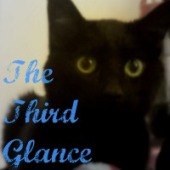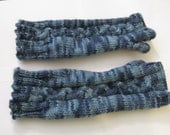Author’s note: I’ve been working on this for months trying to get it right. It’s not quite right yet, but I think it’s time to let it fly free.
——————————————-
I see it every day. I read it from people I respect and whose opinions I cherish. Well-meaning people who care deeply about people in my communities. I hear it from commercials, mass media, and even simply random strangers. Sometimes it’s directed at me, and sometimes its directed at someone else, either present, or not. It’s a qualification. A statement. A description. Someone is described as “beautiful”. Most of the time, it’s meant as a compliment. A statement of how good that person is. How wonderful they are. Sometimes, it’s a statement about a person’s looks. But much of the time, it’s neither. It’s a qualification. Oh, my beautiful autistic friend. Her beautiful son with down syndrome. His beautiful daughter who has cerebral palsy. As if being beautiful is the only quality that makes this person worth acknowledging.
I read a blog post a while ago, by a mother of twins (a boy and a girl). She told a story about a visit to Santa, something many young kids anticipate quite a lot. The boy was asked what his favorite subject was in school. The girl? Santa told her she was pretty. On the surface, things like this seem harmless. The problem, is that repeated over and over, it teaches people that their brains are not important. It’s what’s on the outside that matters. People who are far more eloquent and educated in this subject than I am have written great articles about how harmful telling little girls that they are “pretty” or “beautiful” can be to them as they grow older (example here). The important thing is being able to take pride in yourself, *inside* and out. Being “beautiful” is not an antidote to being “less”.
This is where I start to see a problem. I am going to talk more specifically about the autism community, because that is what I know best, but I have seen this in nearly every other disability community forum that I have ever looked into. I see “my beautiful autistic friend” written out over and over and over again. All you really need is “my autistic friend” if you’re trying to make a point directly related to autism. All you actually need is “my friend” most of the time. Beauty has nothing to do with it. When autism positivity groups compile pictures of awesome autistic people, or blog posts about the good parts of life, the most common adjective used to describe an autistic person is beautiful. As if we’re objects to be admired from afar and that “beauty” is our only redeeming quality, rather than anything else about us. Even other autistic advocates use it to describe each other. But by using the word in the context of “autistic (but) beautiful”, we are continuing to undermine our own humanity, reducing ourselves to something that only holds value by our looks.
I am not a particularly “beautiful” person by any standard. I am fairly petite, and do not have many of the typical features considered “beautiful” by society. Mostly, this is because I don’t care to conform to that. I choose comfort and practicality. My life is lived by creating and employing coping mechanisms for interacting with the world, and I am 100% OK with that. For me, that is my power and my choice, and I am confident in myself and comfortable with how I look. However, I (and many other disabled adults like me), and not a “beauty”. When someone calls me “beautiful”, it feels like a kick in the stomach, because I know that the word is not there due to physical beauty. It’s there to attempt to compensate for something else. To compensate for my “other-ness”. As if “beauty” makes me more of a whole person. There are a lot of positive, powerful adjectives that I can use to describe myself. Things like “passionate”, “friendly”, “kind”, “curious”, or “intelligent”. I might, on occasion, “write beautiful prose” or “wear a beautiful dress” or even have a “beautiful personality” (hah!). But “beautiful” on its own, is not a word I use to describe myself, because, honestly, I’m not, and it’s not something I want to be. By constantly qualifying statements about disabled people with comments about their “beauty”, we’re putting undue pressure on a population to feel self-worth based how we look. We know we often look different. Why not value us for who we are, instead?
Just as society is finally learning to treat young girls as whole people and not just “beautiful” little objects to be admired, I’d like to challenge members of the disability community (disabled people, friends, family, and colleagues) to do the same. We, disabled people of all ages, are so much more than “beautiful”. We are “clever”, “confident”, “creative”, “funny”, “caring”, and many, many, many other adjectives. Some of us truly are beautiful. Some of us are not. Some of us fall somewhere in between. We are people, and deserve to be treated and spoken about as such, without qualifications. If you have to use an adjective (and please consider whether you even need one in the first place), pick one that highlights what you like best about that person. I’m willing to bet it isn’t their “smashing good looks” that has made them valuable to you.
Language is incredibly powerful. While I appreciate being valued for my qualities, I don’t need to be qualified to be valued as a person. So please, don’t call me “beautiful”.







Unique, could work, authentic!
By: tere acosta on February 4, 2015
at 9:18 pm
You’re beautiful, like an object, a beautiful car/house. What is beauty anyway? Maybe it’s the look in someone’s eyes that’s filled with kindness, that’s calm. Maybe beauty is in the confidence and energy in someone’s movements, maybe it’s the calm and authoritative way my vet moves to examine a sick feral cat brought in from the street which he takes care of for free. Maybe it’s the caring look in his eyes and the area of knowledge, intelligence, and alertness that surrounds him.
Beautiful post, and that doesn’t mean the letters are bright or the computer’s screen is flashing. Or that you posted lovely pictures.
By: through my autistic eyes on February 5, 2015
at 1:42 am
Thanks for the comment 🙂 In response to your question, what I find uncomfortable is telling, for example, the vet that he is beautiful, when really, it’s his caring actions that gave you the positive feelings. That’s all…
By: E (The Third Glance) on February 5, 2015
at 8:04 am
This is terrific! It has always bothered me when people attach the word “beautiful” to people with a disability. It bothers me for exactly the reason you stated – it seems like they are attaching the word to compensate for some other short coming. So well written.
By: Elizabeth on February 5, 2015
at 8:28 am
Love this post and the comments. 🙂
By: Autism Mom on February 5, 2015
at 8:52 am
Interesting read! I don’t often run into that word being directed toward people with TS in such a blanket fashion, so it was eye-opening in a couple of ways.
Your timing with publishing this is uncanny, though. I’ve been getting out of my landscape photography comfort zone by branching out into portrait photography. I hear the opposite comment quite frequently when I ask to photograph people: “But I’m not beautiful.” To me that’s irrelevant. But it’s hard to convince people that “interesting” is a lot more fun to photograph than “beautiful”.
To give an example and to go back to the comment made by through my autistic eyes, I would far rather photograph your vet’s hands, palpating a feral cat’s body, than photograph the face of a vet with “smashing good looks”. The former makes for an interesting photograph. The latter makes the viewer wonder if that’s reeeeally a vet…
I guess what I’m getting at is that as important as it is for people not to feel the need to qualify others in order to value them, it’s just as important not to feel the need to qualify ourselves in order to value ourselves. It certainly makes life easier for photographers, and it would do wonders for our own sense of self-worth.
By: Tom Benedict on February 5, 2015
at 1:31 pm
Hello E
I love your blog and have been following you for quite a while now, and while I am also on the A spectrum I sadly do not share your gift for writing but I would like to convey my thoughts on this fashion for the ‘beautiful’ autistic friend.
I completely agree with you that ‘beautiful’ is an inappropriate way to describe an autistic person/friend and that there are many better adjectives available that would provide far more accuracy of the value of that person autistic or not.
I think this because details are important to me, I like things to be done properly and I get annoyed when people say and do things that are not accurate or don’t make sense or are illogical.
Others, neuro typical people, get annoyed with me because I focus on the detail.
NTs, and I’m generalising here but…. They aren’t so concerned with the detail. They would hear someone describing their autistic friend as beautiful and thought…oh that’s nice….that’s a lovely way to describe my friend, I’ll do it too.
And before you know it everyone is doing it.
They think they are being so nice.
It’s not important to them that it’s actually not an accurate way to describe us, and we might not like it.
They are much more concerned about social conformance, fitting in, being nice.
We are much more concerned with ACCURACY, and this for us trumps social conformance.
I still find social occasions very difficult, but understanding that for many others social acceptability is a dominant force I’m able to play the game a little better.
By: Jac on February 9, 2015
at 11:33 pm
This reminds me of something my grandmother used to tell me when I was being a brat – pretty is as pretty does – generally I stopped being a brat.
By: Dawn Marcotte on February 10, 2015
at 1:57 pm
I think there is a general and deep problem with society equating different with inferior. I have certainly noticed parallels between the otherization of women and the treatment of autistic individuals in society. Sexism and autism discrimination often comes in the wrapping paper of patronizing, infantilizing, and objectifying. Society can’t quite get the grasp of different not equal to inferior. Yes women, autistic individuals, and plenty of other communities subscribe to different social norms, values, and have a different perspective on the world. That does not mean you should treat us like children or freaks.
By: AutisticPhysicist on June 5, 2015
at 5:55 pm
[…] "Beautiful". […]
By: “Beautiful” | solome on June 7, 2015
at 11:33 am